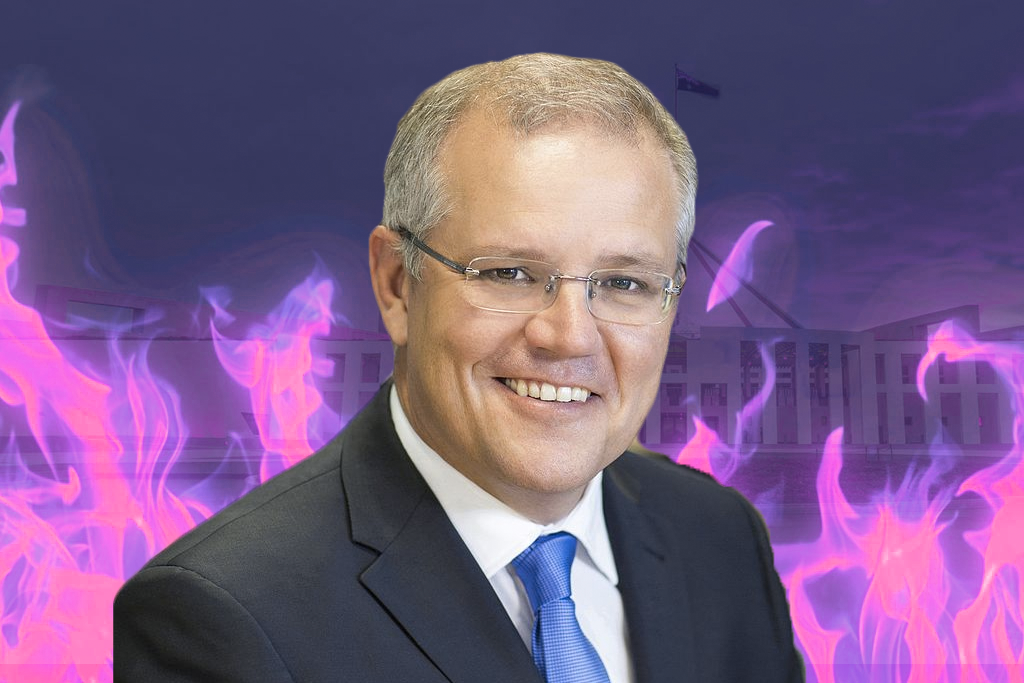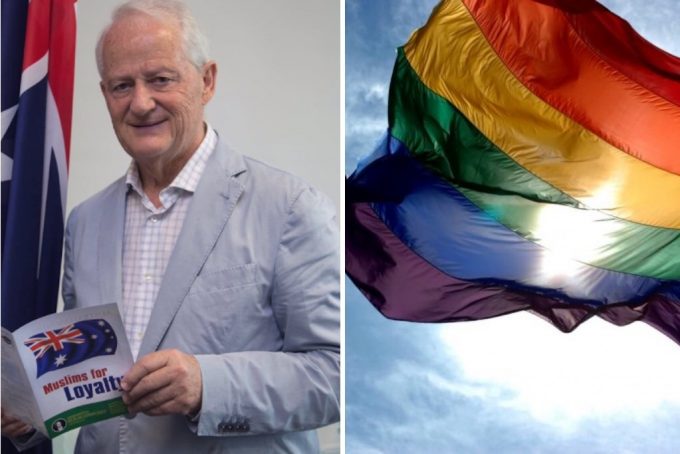Scott Morrison Is Being Deeply Misleading About “Religious Freedom”
ScoMo is trying to do a John Howard.

The Ruddock Report recommendation to allow faith-based schools to discriminate against LGBT students and teachers is John Howard’s 2004 same-sex marriage ban all over again.
The recommendation has been justified by Scott Morrison as not going beyond “existing law”, just as the Howard ban was sold to us as simply “clarifying” the existing legal status of marriage as a purely heterosexual.
In both cases the “nothing will change” mantra is deeply misleading.
2004 All Over Again
The Howard government’s 2004 ban on same-sex marriage was put in place because the law in other countries, and potentially in Australia, was shifting towards greater recognition of same-sex unions.
The Ruddock proposal is also a reaction against shifts towards LGBTIQ equality.
Obviously, the Ruddock report is a response to the enactment of marriage equality last year, a reform which the religious right has not reconciled itself to, and still appears to want to punish LGBTIQ people for.
But there have also been major shifts in Australian anti-discrimination law that the religious right is trying to hold the line against.
For twenty years, Tasmanian anti-discrimination law has prohibited discrimination against students and teachers in religious schools on precisely the grounds Ruddock wants an exemption for — sexual orientation, gender identity and relationship status.
In recent years Queensland and the Northern Territory have protected LGBTIQ students from discrimination in religious schools. In the last twelve months, Victoria and Western Australia have seen moves in Parliament to remove their exemptions and come up to the Tasmanian standard.
The idea of a federal law entrenching the legal right of religious schools to discriminate against LGBTIQ people is an attempt to hold back and reverse the tide of change.
If such a law was enacted, the result would be devastating.
If Scott Morrison moves to override it then bigotry will be unleashed against teachers, students and families who thought they were protected. Even if the Ruddock review only leads to federal law copying the exemptions currently in most mainland anti-discrimination laws, the situation will be dire.
It will give renewed cultural and legal legitimacy to forms of discrimination that are rapidly becoming less acceptable.
Let's be clear: the Tas Discrim Act DOES NOT allow LGBTI discrim in faith schools. So the question is, does Morrison want to override Tasmania? https://t.co/Xae55I3SO5
— Rodney Croome (@RodneyCroome) October 10, 2018
It will give bigotry a green light and lead to an upsurge in unfair treatment against LGBTIQ students and teachers.
It will give old prejudices new life. The old prejudice enlivened by the Howard same-sex marriage ban was the myth that same-sex relationships are inherently unstable and short-lived.
In the case of the Ruddock schools’ proposal, the old prejudice given new legitimacy is that LGBTIQ people are somehow a threat to children.
Neither of these prejudices have any place in contemporary Australia.
There are plenty of other parallels between 2004 and 2018.
For example, the same-sex marriage ban was part of a global movement to “protect traditional marriage” that came to our shores from the USA.
Ruddock’s proposal is also part of a broader movement originating in the United States, this time to weaken LGBTIQ discrimination protections in the name of “religious freedom.”
But the most urgent parallel is that the Ruddock proposal, like the Howard ban, is about the Coalition wedging Labor and winning the next federal election.
Morrison, like Howard before him, wants to use this issue to win seats off Labor in western Sydney where, as the postal survey confirmed, support for LGBTIQ equality is low.
The Same Tired Old Arguments
Morrison effectively wants to continue the No Campaign’s fear-mongering about religious freedom and schools right up until the next election.
My concern is that Labor will roll over and support Morrison, just like it did with Howard in 2004.
At the least, it may try to cut a deal by, say, opposing discrimination against LGBTIQ students but supporting it against teachers.
Labor members like Kimberley Kitching are already making noises about defending “Judeo-Christian values”.
Earlier this year Labor’s deputy leader, Tanya Plibersek, said Labor had “no plan” to change laws allowing religious schools to fire LGBTIQ teachers.
Labor strategists will be pushing hard to neutralise the wedge in western Sydney and regional Queensland by giving in at every turn.
If the latest push against LGBTI equality isn’t going to turn out like 2004, supporters of equality must make a strong case and make it now.
We need to remind moderate Liberals that a child’s freedom from discrimination is more important than a bishop’s “freedom” to impose his religious views on other people.
We need to remind Labor that Australia’s anti-discrimination laws are its legacy, which it has a responsibility to defend.
We need to remind Labor that Australia’s anti-discrimination laws are its legacy, which it has a responsibility to defend.
Most of all we need to remind the nation that Australia is a better place for having anti-discrimination laws, and we will be a better place still when we improve those laws to offer ever more protection for vulnerable people.
If you have any doubt about that, just look to Tasmania. Once the most homophobic state, it is now one of the most inclusive and respectful of LGBTI people. It returned a Yes vote in last year’s postal survey that was the highest among the states after Victoria.
That didn’t happen by accident; it happened because the discrimination law sets a high standard.
The sky over Tasmania hasn’t fallen in, no religious schools have complained, and the island is a better place.
Rather than watering down Australia’s anti-discrimination laws, we should be lifting them up to the standard set in Tasmania.
Rodney Croome is a veteran campaigner for LGBTIQ rights and was instrumental in overturning Tasmanian laws that outlawed homosexuality in the 1990s.

